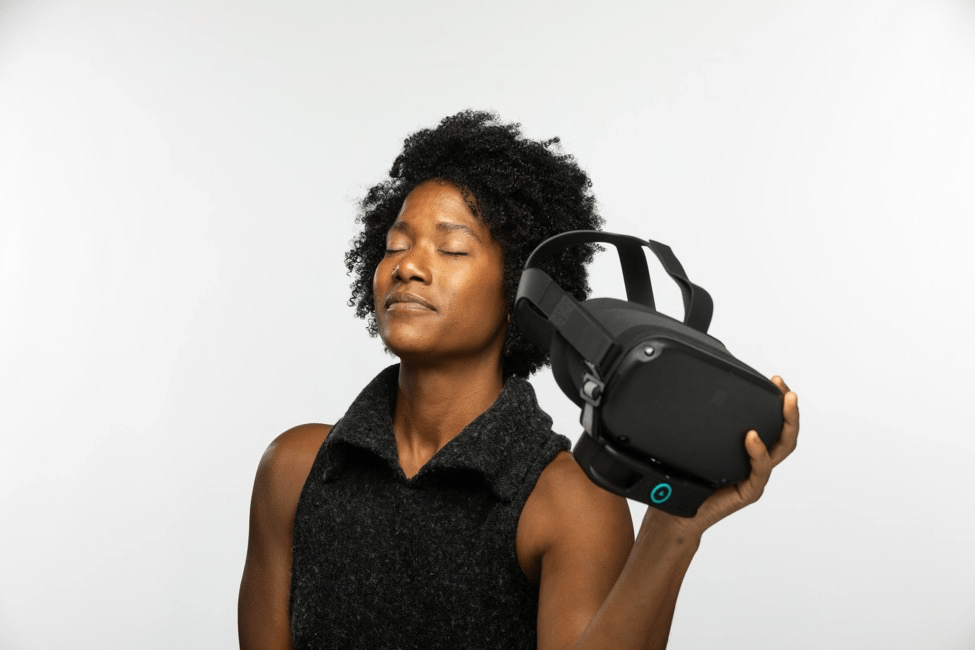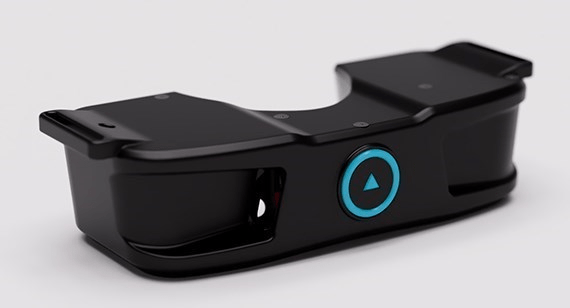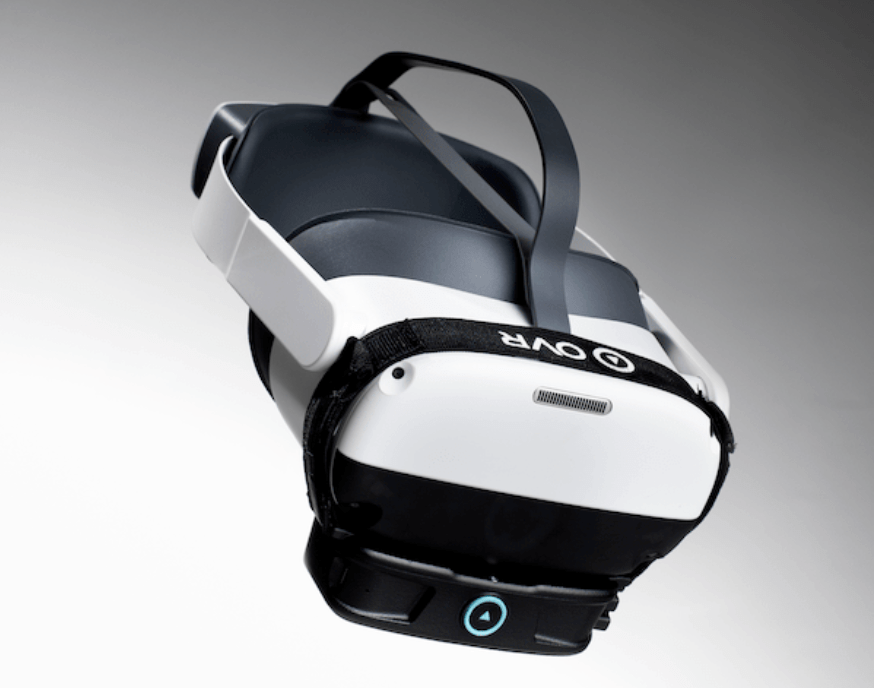
Virtual reality has recently become a popular topic in psychological studies due to its potential to help with disorders such as anxiety, depression, schizophrenia, and trauma. While mindfulness, meditation, and grounding techniques can all be useful tools for these conditions, it can be difficult for patients to focus when their mind is racing or they’re not feeling their best mentally.
Giuseppe Riva, director of the Applied Technology for Neuro-Psychology Laboratory at the Italian Istituto Auxologico, says that’s where virtual reality (VR) can help. “The main difficulty in mindfulness and meditation is [quieting] the mind, blocking out all external stimuli. Well, VR gives you ‘presence,’” Riva says.
Because virtual reality simulations are extremely immersive and realistic, they can be a powerful tool for therapy. Research says that VR simulations can trigger emotional, psychological, and physical reactions, such as anxiety, sweating, joy, self-compassion, presence, or confidence—similar to reactions in real life. Experts also believe that VR has the potential to make psychiatric treatments better, more cost-effective, and available to a larger group of patients.
The Mental Health Benefits of Virtual Reality
Virtual reality can be used to benefit mental health in two ways: as a stand-alone psychiatric tool or as a complementary therapy (read: a supplement to an existing therapeutic strategy). How exactly it’s used will depend on the specific patient and their existing conditions, but virtual reality may benefit mental health in these five ways.
Read more about holistic mental health treatment here.
1. Phobias
Individuals with specific phobias—think: fear of heights, fear of spiders, and speaking anxiety—are among the least likely to seek assistance, yet up to 90% of these individuals could be improved or cured after just one session of exposure therapy, according to the journal Neurobiology of Alcohol and the Brain. Why? Virtual reality makes psychological treatment much more accessible and can be used to increase opportunities with at-home VR exercises. But also, beyond being readily available, the evidence around VR as a phobia treatment is also quite compelling.
Two randomized controlled trials were conducted on participants who had a fear of heights. Participants who received six, 30-minute sessions and six, 5- to 40-minute modules of stand-alone VR cognitive behavioral therapy reported a large reduction in symptoms when compared to the group who received nothing. Interestingly, the first controlled trial used a head-mounted display, whereas the second controlled trial used low-cost cardboard goggles and the study participants’ personal smartphones. This shows that even low-cost, fully self-guided therapy with rudimentary VR goggles can be effective for phobias.
Additionally, the trials found that a single session of self-guided virtual reality exposure therapy for a phobia of public speaking was as effective as a therapist-led session, and the positive effects were still sustained after six months. Similar positive results were found for a single session of spider phobia therapy compared to in-person with a therapist.
2. Substance Abuse and Addiction
A 2020 systematic review showed that VR is beneficial for substance disorders (such as nicotine dependence, alcohol dependence, and drug dependence), gambling disorders, and Internet gaming disorders.
Virtual reality is immersive, so it can change the environment to simulate craving and trigger pathological behaviors or sensations. Through these exercises, patients can learn to cope with their problems in a more targeted and effective way. But also, VR (especially when scent is incorporated) can promote relaxation, better sleep quality, and lessen anxiety—all of which support addiction recovery.
3. Sadness, Anxiety, and Anger
One study showed that after a single VR mindfulness skills training session, participants reported an improvement in their state of mindfulness. Additionally, participants said they were more relaxed and less sad, angry and anxious.
Practicing mindfulness can benefit people both mentally and physically, but it can be difficult to implement when there are real-world distractions (for example; it’s hard to meditate when you have kids running around or your partner is watching TV). Virtual reality can fully immerse users in a 3D, computer-generated environment that limits distractions and facilitates a sense of presence.
It’s worth noting, however, that VR isn’t necessarily any better for anxiety than conventional therapy: only small effects in anxiety reduction were found when comparing a VR session or experience with conventional therapy.
4. Depression
Virtual reality has been used as a tool to enhance self-compassion in patients with depression. In one study, participants were asked a series of questions that helped determine the severity of their depression. They then completed three sessions of an 8-minute immersive VR scenario over the next few weeks. During the VR scenario, they practiced giving compassion in one virtual body and received it from themselves in another virtual body. After three sessions, they were asked to complete the same questionnaires. The study found that the VR sessions led to significant clinical improvements, including an increase in self-compassion and a reduction in depression severity. These positive results were sustained immediately afterward as well as at the 4-week follow-up session.
5. Stress
Research shows that a regular mindfulness meditation practice can help reduce stress, boost cognitive performance, and improve physical and mental health. Virtual reality can help facilitate the relaxation process through immersive guided meditation. Since VR eliminates outside distractions, it can be that much easier to implement mindful meditation into your daily routine.
Recent neuroimaging studies have associated mindfulness with a number of positive changes in the brain. After practicing mindfulness meditation, the fronto-limbic networks involved in these processes show patterns of engagement. Translation? Mindfulness practice can positively change brain structure and help regulate emotions, improve attention span, foster well-being, increase self-awareness, and even help treat clinical disorders.
Overall, research shows that virtual reality can improve mental health and well-being. Certain conditions such as phobias, anxiety, and depression, as well as more general mood states like stress and anger, could benefit from the use of VR.
 OVR Technology Inhale Olfactory VR Module
OVR Technology Inhale Olfactory VR Module

VR Headset with OVR Technology Olfactory VR Technology
.png?width=618&height=603&name=ovr_circle_w%20(1).png)




